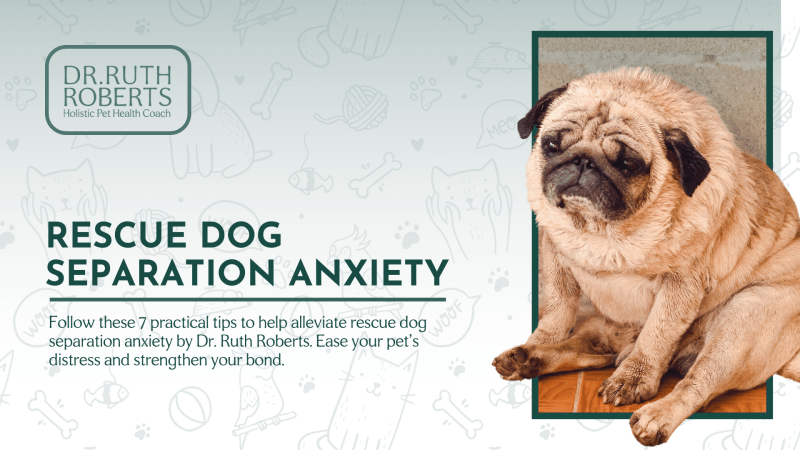Dog Mental Health Tips – Beyond just being a friend, pets have several advantages. Taking care of a dog, cat, or any other animal may help your heart health, lower stress levels, and increase your emotional well-being. This article provides helpful advice for keeping a positive connection with your pet as well as an exploration of the ways in which dogs, in particular, may assist mental health.
Table of Contents
ToggleThe Bond Between Humans and Pets
Having a pet—a dog in particular—can greatly enhance both physical and emotional well-being. Research on the effects of pets on the mental health of their owners has grown in volume. Dogs, for instance, have an extraordinary ability to read human emotions via our body language, gestures, and tone of voice in addition to the words we say. A devoted dog will try to read your eyes and tell you how you’re feeling, offering you support during stressful times and acknowledging happy occasions. In a manner that only a devoted pet can, this emotional bond offers consolation in a way that helps reduce anxiety and depressive symptoms.
The Therapeutic Power of Pets
The psychological advantages of owning a furry buddy are evident for many pet owners. A basic emotional desire for affection and connection is satisfied by pets. After developing relationships with animals, even emotionally tough people can undergo transformations. According to studies, for example, inmates in rehabilitation programs frequently create emotional bonds with dogs that aid in behavior modification.

Quickly relieving tension in the muscles and decreasing blood pressure are the effects of petting or snuggling a dog on stress or anxiety. Pets also provide a great feeling of purpose. Playing, feeding, and going on walks with them will assist you in creating a routine, which can be a critical first step in reducing depression.
Choosing the Right Pet for Mental Health
Selecting an animal companion that fits your lifestyle and emotional requirements is crucial, as not all pet owners are suitable for the same kind of animal. For example, because they need to be walked frequently, dogs are great for people who want to be physically active. Contrarily, cats are more autonomous and can be a better choice for those looking for a low-maintenance friend. Unlike more conventional pets like dogs or cats, rabbits, birds, or even reptiles may provide unique types of companionship and stress relief without requiring the same amount of commitment.
It has been demonstrated that even merely observing fish swim in an aquarium may ease tension and anxiety. Even though they are unusual, reptiles are low-maintenance friends, and older folks who love socializing and engagement with others may find birds especially exciting.
Pets and Exercise
Among the most obvious advantages of dog ownership is that dogs promote exercise, which is linked to better mental and physical health. You may mix fitness with connecting with your dog when you go for walks, hikes, or jogs together. Taking regular walks and caring for your pet might help reduce symptoms of sadness and keep you busy.

Your pet will benefit from exercise just as much as you will. Frequent exercise will enhance their attitude, conduct, and general well-being, making them a more agreeable and easier partner. In addition, playing with your dog—even if it’s just a quick game of fetch or a run in the park—releases endorphins, which lift your spirits.
Reducing Loneliness
Dogs not only promote physical wellness but also companionship, which helps lessen feelings of loneliness and isolation. Pets provide solace and fill emotional gaps for single people. Talking to their pets becomes a habit for many dog and cat owners, and occasionally the pets grow to be confidants. Even if they are unable to communicate verbally, their very presence can offer consolation and comprehension.
Dogs can also promote social connection by acting as a bridge between people. Dog owners frequently run into new individuals when out on walks with their dogs or at dog parks. This increased social contact can foster a feeling of community and help fight loneliness even more.
Coping with Anxiety and Stress
People who own pets—especially dogs—are better able to live in the now and have less worry about the past and future. Animals naturally exhibit mindfulness, which may spread and assist pet owners in keeping their attention in the here and now while lowering stress and anxiety.

Another way pets reduce anxiety is through routine. Consistent feeding, exercise, and care are necessary for dogs, and these habits may help you create order in your life. Your day will be more stable thanks to this structure, since your pet’s requirements will motivate you to keep to a schedule even on your worst days, which might help you feel less stressed.
Pets and Aging
Pets may offer much-needed companionship to senior citizens. Feelings of loneliness are common among the elderly, especially after retirement, the death of a spouse, or the moving away of children. This emptiness is filled by emotional support and a feeling of purpose that comes with having a pet.
Seniors who own pets stay active as well. Engaging in play or walks with a dog or cat encourages physical exercise, which is essential for preserving health as one ages. Exercise is especially important for dogs, who may help elderly persons stay active and mobile.
Pets can also support seniors’ social connections. Whether it’s interacting with other dog owners or meeting new people at the dog park, having a dog promotes social contact. These modest, routine social ties can go a long way toward preventing the loneliness that frequently comes with getting older.
Pets and Children
Having a pet may be quite beneficial for children as well. Children who have pets grow up with deeper emotional ties and show more compassion, empathy, and responsibility. Moreover, having pets around helps lessen the chance of developing allergies and asthma.
Children can also benefit much from playing with and learning from pets. Providing for a dog’s basic requirements or teaching them a new skill cultivates a sense of responsibility in them. A child’s ability to focus and develop emotionally can be enhanced by the physical and cerebral stimulation that pets provide.

Pets offer a nonverbal form of communication for kids with autism or learning impairments, providing comfort and companionship in ways that would be difficult to get from others.
The Reality of Pet Ownership
Despite the fact that having a pet has several advantages for mental health, it’s critical to understand that pets cannot treat mental disease. It takes money, time, and care to have a pet. Having a pet won’t necessarily make you feel better mentally if you don’t genuinely love animals.
Being ready for the duties that come with owning a pet is crucial. Particularly, dogs need daily exercise, care, and attention. Making the decision to get a pet requires financial stability because veterinary costs, food, toys, grooming, and other expenses may mount up.
And last, having a pet has emotional consequences. Being separated from a cherished friend may be quite painful, therefore it’s critical to be ready for the possible sadness that follows the loss of a pet.
Conclusion
Having a dog or other pet may have a huge positive impact on one’s mental health, promoting sociability and physical exercise while also lowering anxiety and sadness. But it’s crucial to pick a pet that fits your lifestyle and to be ready for the obligations that go along with owning one. In exchange, a pet may make your life healthier and happier by providing you with devotion, company, and unconditional affection.
- Wildlife Conservation Initiatives: A Critical Overview - September 4, 2024
- 3 Program Endangered Species Protection - September 4, 2024
- Threatened Wildlife Species in 2024 - September 4, 2024









